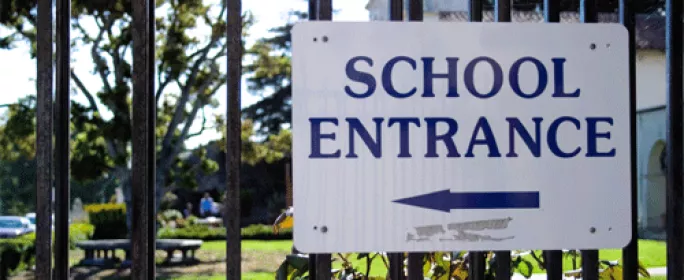School admissions are ‘bewildering’ to parents, report claims
England’s growing range of school admissions policies is “bewildering” to parents, creates unfairness and should be the subject of a full government review, a report has said.
Even techniques designed to make admissions more equitable, such as “fair banding” tests, could put the most deprived at a disadvantage, research by Comprehensive Future says.
The fair banding tests are designed so the school admits pupils across the ability range, but they depend on children having parents organised enough to apply for the tests and ensure they turn up for them, the report says.
Researchers found that only one authority - Lewisham - put all its primary school children through the fair banding tests during the normal school day.
Tests that allow children in on the basis of musical aptitude or sporting ability are also problematic as they rely on organised parents making sure children attended them, it says.
“This eliminates a whole tranche of children whose parents do not, for whatever reason, bring them to be tested and is likely to exclude some of the most deprived and disadvantaged,” the report says.
The study also says the growing number of academies - which are their own admissions authorities - means the school admissions situation could become even more opaque for parents.
Researchers also highlighted wide variations in different local authorities. While some had very few schools who selected on faith or ability, others had a very high proportion doing so.
In Yorkshire and Humber, 82 per cent of schools did not operate faith requirements or tests, while in Inner London, this figure was just 39 per cent.
The report said: “While the majority of schools are using easily measurable criteria, such as distance from home to school and siblings already in the school and those required by law, ie, for looked-after children, some schools have extremely complex criteria.
“In a few schools, to maximise a child’s chances of admission, families would need to worship regularly and obtain a letter to say so; sign up for an aptitude test and attend at the designated time; and sign up for the banding test and attend at the designated time.
“Complex criteria, such as these, make it very difficult for parents to predict whether their child will get a place.”
This is despite a requirement in the School Admission Code that says parents should be able to look at policies and “understand easily how places for that school will be allocated”.
Margaret Tulloch, secretary of Comprehensive Future, which campaigns for fair school admissions, said there was no way out of the current situation without a full government review.
“When you look at some areas it is difficult to see that anyone can claim that parents have a ‘choice’ of schools. The more hoops children have to jump through to get into different schools, the more unfair the system becomes,” she said.
Conor Ryan, director of research at social mobility charity The Sutton Trust, said that intakes based on distance from school only could also result in unfairness.
England’s 500 top-performing comprehensives had half the average number of pupils on free school meals, often because richer parents were the only ones who could afford to live near the schools, he said.
“If we are to enable a wider range of pupils to go to these schools, we need to open up admissions for at least a significant proportion of places through fair banding or random allocation.
“Of course, this must be done fairly and transparently, and it should be done in conjunction with improved outreach to less advantaged families and good transport links.”
He supported the idea of using the same fair banding system across a whole local authority, rather than it varying from school to school.
Keep reading for just £1 per month
You've reached your limit of free articles this month. Subscribe for £1 per month for three months and get:
- Unlimited access to all Tes magazine content
- Exclusive subscriber-only stories
- Award-winning email newsletters




